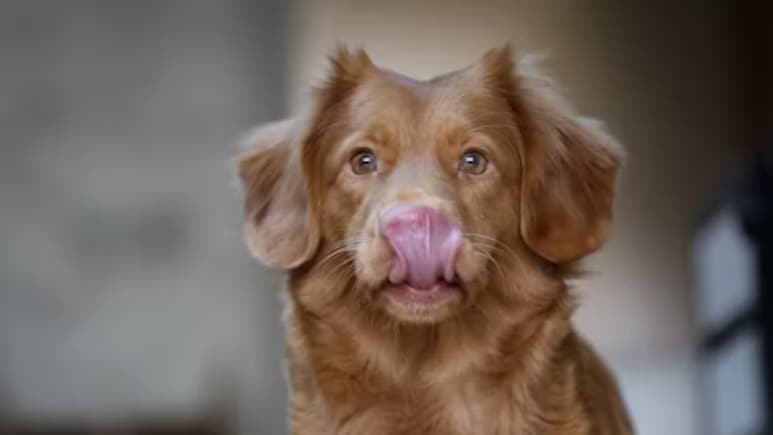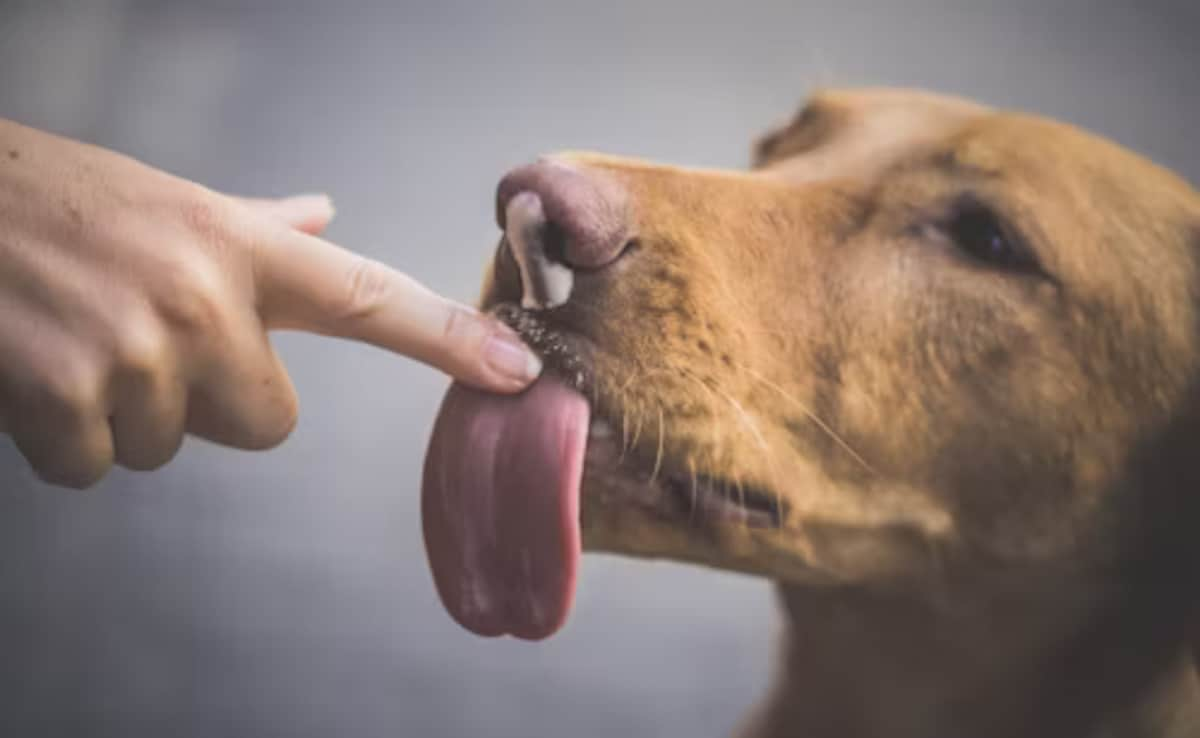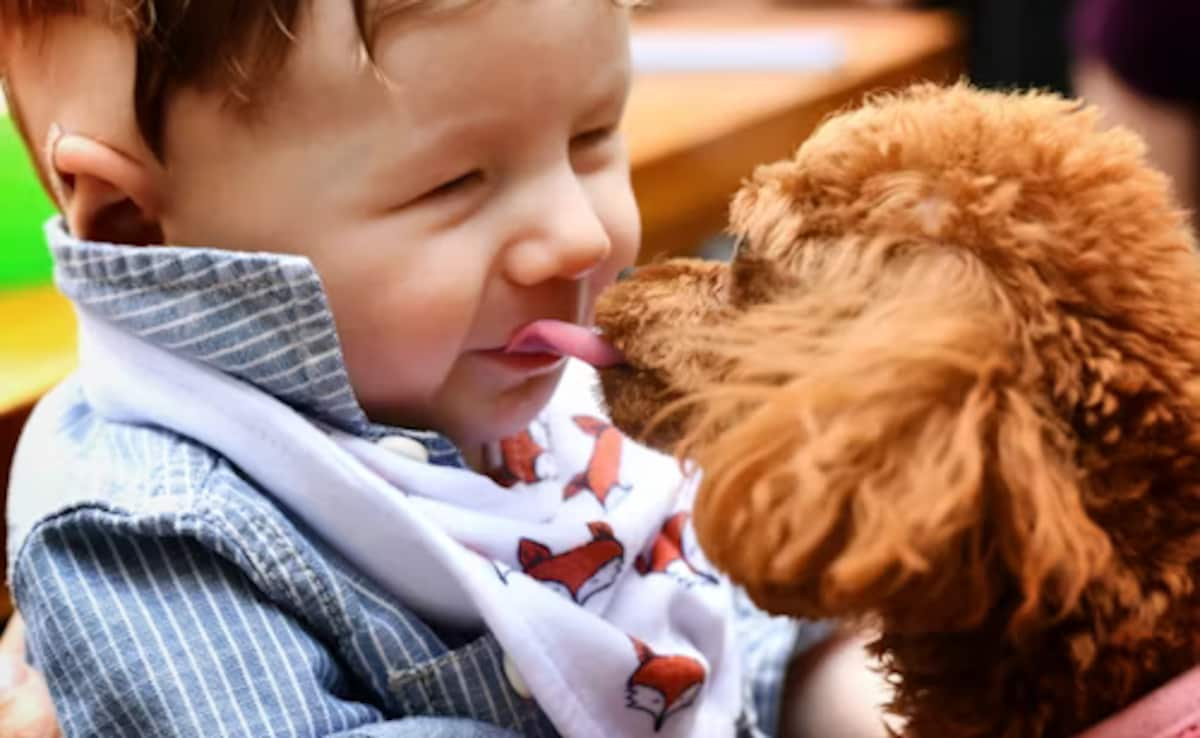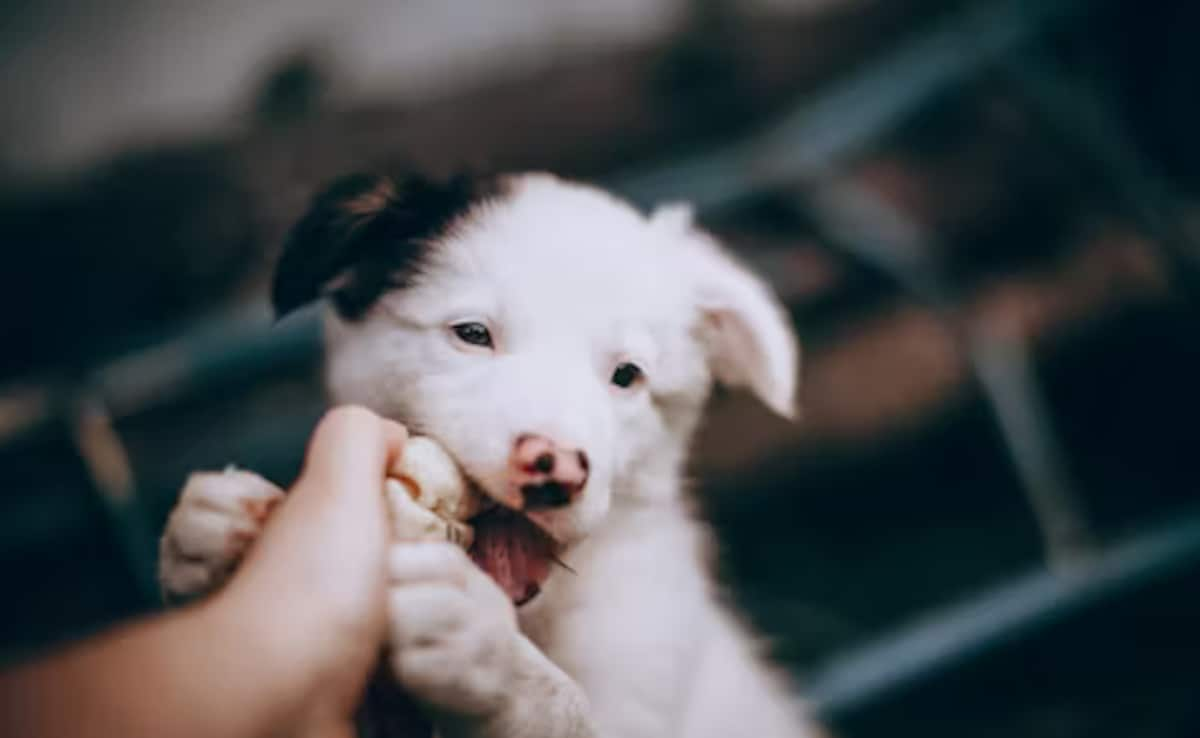
For many pet parents, there's no purer expression of love than that sloppy, tail-wagging, full-tongue "kiss" from their dog. It's cute, it's affectionate... and, as most of us like to believe, completely harmless.
After all, there's that long-standing myth about dog saliva having magical healing powers, right? Well, as it turns out, the truth may be far less cuddly and far more clinical.
That reality came into sharp focus recently in the UK, where 83-year-old June Baxter from Attleborough, Norfolk, died after developing septic shock. The cause? A cut on her leg that was licked by her granddaughter's dog.
Baxter had injured herself while using a commode at home on June 29. By the time her granddaughter arrived, the family dog had licked the wound. Tests later revealed the presence of Pasteurella multocida, a bacterium found in roughly half of all dogs's mouths.
While harmless to the dog, it proved deadly for Baxter, who died of sepsis on July 7 despite receiving medical treatment.
The tragic incident has raised an important and often overlooked question: Can letting your dog lick you actually make you sick?
"Yes, It Is Possible..."
Dr Tushar Tayal, Consultant, Internal Medicine at CK Birla Hospital, Gurugram, says, "Yes, it is possible, though not very common, to get sick from a dog licking you. A dog's mouth contains many types of bacteria, some of which can be harmful to humans."
He adds, "These germs come from things dogs often do, like licking or sniffing dirty surfaces, eating things off the ground, or grooming themselves. So while a lick from your dog is often seen as a sign of affection, it's important to know it can also carry health risks in certain situations."

If the lick lands on healthy, intact skin, the risk remains low.
"Our skin is a strong barrier that keeps most germs out. In healthy people, an occasional lick on the arm or hand is unlikely to cause any serious illness. However, if the dog licks areas near the mouth, eyes, or nose... or if it licks broken skin, such as a wound or rash, the chances of infection increase," Dr Tayal explains.
Who's More Vulnerable?
Some groups, Dr Tushar Tayal adds, are more vulnerable, including those with open wounds, weakened immune systems, the elderly, and young children. For them, bacteria like Capnocytophaga, Pasteurella, E. coli or even Staphylococcus can cause severe infections, though such cases remain rare.
The Healing Saliva Myth? Busted.
And as for the age-old belief that dog saliva heals wounds?
"This is more of a myth than a medical fact... While dog saliva does contain some mild antibacterial enzymes, it also carries a large number of harmful bacteria. From a medical perspective, it is not recommended to let dogs lick wounds - it's better to keep wounds clean, covered, and treated with proper first aid," Dr Tayal warns.
The Fatal Cost Of Overlooked Hygiene
Dr Piyush Mishra, General Physician & Immunisation Officer, North East District, New Delhi, points out that most healthy adults have little to fear from an occasional lick.
He says, "Most dog saliva does contain bacteria, but in most cases, it is not an issue. The only real concern... is when there are open wounds, exposed mucous membranes, and excessive licking. Basic hygiene, such as washing hands or face as needed, is usually enough to prevent any problem."
Keeping the dog healthy is also a key part of lowering risks: "A dog that is vaccinated and dewormed on a regular basis is far less likely to transfer any harmful bacteria or parasites through licking. Having the pet examined regularly... means that there is a better

chance that infections can be remedied quickly, significantly lowering the threat to humans."
While Dr Mishra has heard of rare cases involving Capnocytophaga canimorsus causing severe infections and even amputations, he stresses that such outcomes typically involve people with underlying health issues. He also notes that the media often amplifies the fear.
> "In most instances, the risks are exaggerated... A little common sense in hygiene and keeping the pet healthy is a fair compromise of enjoying the relationship safe and healthy."
The Dog's Health Matters (A Lot)
Dr Nehal Shah, Consultant Paediatric Medicine, Narayana Health SRCC Children's Hospital, Mumbai, agrees that severe cases from dog licks are "very rare" in healthy people.
She says, "Dogs' saliva does contain some bacteria which won't trouble most healthy people, but if it comes in contact with open wounds, abrasions, breached skin... it can rarely cause infection."
However, for people who are already sick, immunocompromised, or undergoing certain treatments, caution is vital.

"A healthy, fully immunised dog is least likely to spread any kind of infection or illness... Oral hygiene is utmost important as saliva contains certain bacteria which can be passed on to at-risk individuals and cause infections," she shares.
Regular veterinary visits, she adds, can be a game-changer: "Regular vet check-ups help in recognising health issues at the earliest, giving appropriate care at the right time, and avoiding spread of infection... Oral hygiene, like brushing teeth and regular cleaning, can avoid the accumulation of bacteria in the oral cavity and subsequently passing on to others."
The Bottom Line
For most healthy people, a dog's lick is unlikely to send you to the ER. But if you have open wounds, compromised immunity, or a pet that isn't up-to-date with its vaccinations and vet care, that seemingly sweet gesture could turn risky.
So, by all means, let your furry friend shower you with affection, just remember that love, in this case, is best enjoyed with a little bit of healthy caution... and maybe a handwash afterwards.
Track Latest News Live on NDTV.com and get news updates from India and around the world

